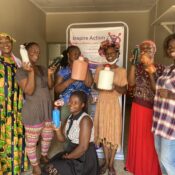
Sexual Exploitation, Abuse and Harassment
In the words of the famous French poet and politician, Victor Hugo, “there’s one thing that’s stronger than all the armies in the world, and that’s an idea whose time has come”. Evidently, the time has come for all persons to join the global movement against all forms of Sexual Exploitation, Abuse and Harassment (SEAH).
The United Nations estimates that about 120 million females worldwide under the age of 20 have experienced various forms of sexual contact. In Ghana, 1 in every 4 Ghanaian women have been victims of sexual violence says a 2022 UNWOMEN report.
These figures are not just numbers, they represent real people whose lives have been shattered by appalling acts of sexual exploitation and abuse.
To identify SEAH, it’s important to understand and know what they are. Sexual exploitation involves taking advantage of someone for sexual purposes, often through coercion, manipulation, or the abuse of power.
Sexual Abuse refers to any sexual violation committed with force, coercion, or through an unequal relationship; the threat of such violation also constitutes sexual abuse
The International Labour Organization (ILO) defines Sexual harassment as any behaviour of a sexual nature that affects the dignity of women and men, which is considered as unwanted, unacceptable, inappropriate and offensive to the recipient, and that creates an intimidating, hostile, unstable or offensive work environment.
Sexual exploitation and abuse manifest in various forms, each equally wrong. It consists of various behaviours, including human trafficking, forced prostitution, sexual assault, coercion, and harassment. Perpetrators wield power and control over their victims, exploiting vulnerabilities for personal gain or gratification. Often, these heinous acts are perpetrated against the most marginalized and vulnerable members of society, including women, children, migrants and many others.
SEAH often occurs in areas where power imbalances exist, such as workplaces, educational institutions, and intimate relationships. The perpetrators leverage their positions of authority to either coerce or manipulate others into unwanted sexual acts, which creates environments rife with fear, intimidation, and silence. Victims, fearing retaliation or disbelief, may hesitate to come forward, further creating a culture of impunity that shields abusers from accountability.
Furthermore, the rise of technology has made SEAH easier to flourish. The internet offers anonymity and accessibility, enabling predators to groom, manipulate, and exploit victims online. Social media platforms, online forums, and peer-to-peer networks serve as breeding grounds for exploitation, facilitating the exchange of explicit images, the solicitation of minors, and the dissemination of harmful content. The methods of SEAH are constantly evolving side by side with technology, which presents new challenges for law enforcement and policymakers.
Addressing SEAH would require a holistic approach that will address the issue from its roots through constant education and support for victims of SEAH. As such, Inspire Action, a Ghanaian NGO has joined the charge in creating awareness of the need to prevent all forms of sexual exploitation and abuse (SEA) through its Prevention Sexual Exploitation, Abuse and Harassment (PSEAH) campaign.
Thus far, Inspire Action has undertaken workshops in two schools and has started an intensive social media campaign to create awareness.
Inspire Action believes that SEAH has no place in this world hence it’s important to socialize our children in a way to identify and prevent SEAH. This initiative will help reduce the number of SEAH cases not only in Ghana but across the world.
By Jessel Lartey Therson-Cofie
All Categories
Recent Posts
Eco-Friendly Menstrual Products in Ghana: Breaking the Taboo
PSEA Campaign a success at OLAS ‘2’
Quick support proccess
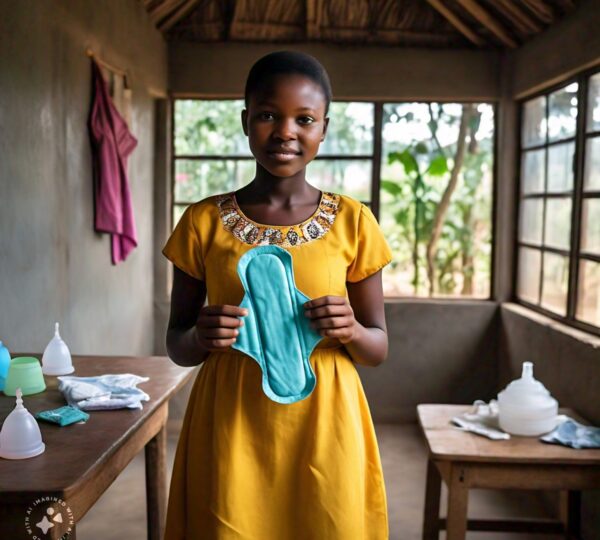
Eco-Friendly Menstrual Products in Ghana: Breaking the Taboo
In recent years, there has been a growing global conversation surrounding menstrual health and hygiene, shedding light on the challenges faced by millions of women and girls worldwide. However, in
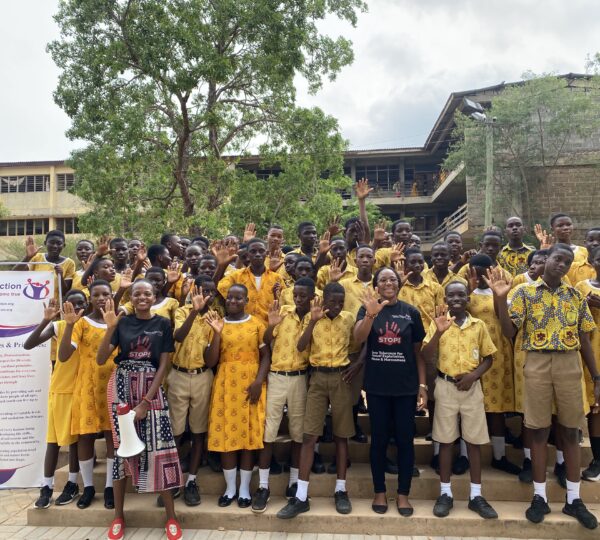
PSEA Campaign a success at OLAS ‘2’
On May 10, 2024, Inspire Action continued its Prevention of Sexual Exploitation and Abuse campaign at Our Lady of Assumption (OLAS) Basic School ‘2’ in Achimota. Over 80 students participated
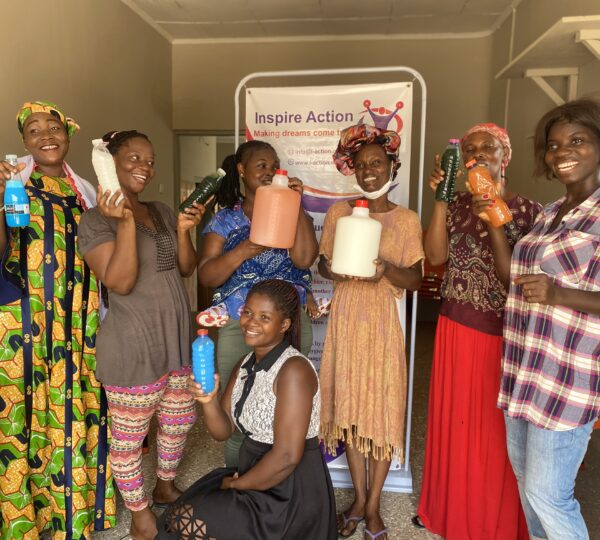
PVOT COHORT 2: Inspire Action trains 11 people in detergent manufacturing
Inspire Action through its Promotion of Vocational Oriented Training (PVOT) initiative has trained 11 people for the second cohort of its detergent manufacturing class. With a mission to provide vocational
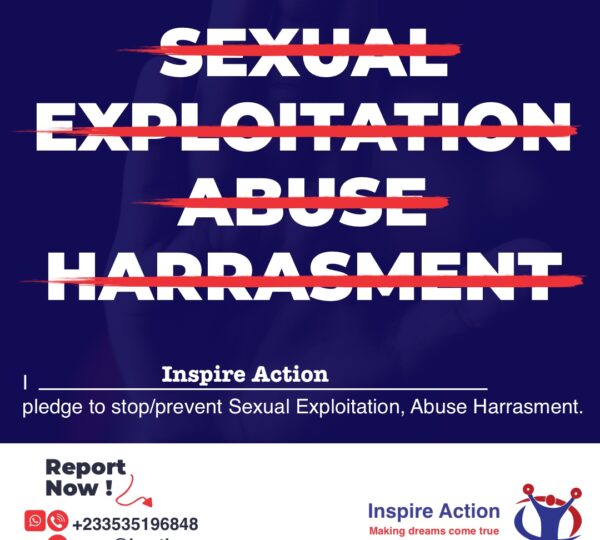
Sexual Exploitation, Abuse and Harassment
In the words of the famous French poet and politician, Victor Hugo, “there’s one thing that’s stronger than all the armies in the world, and that’s an idea whose time
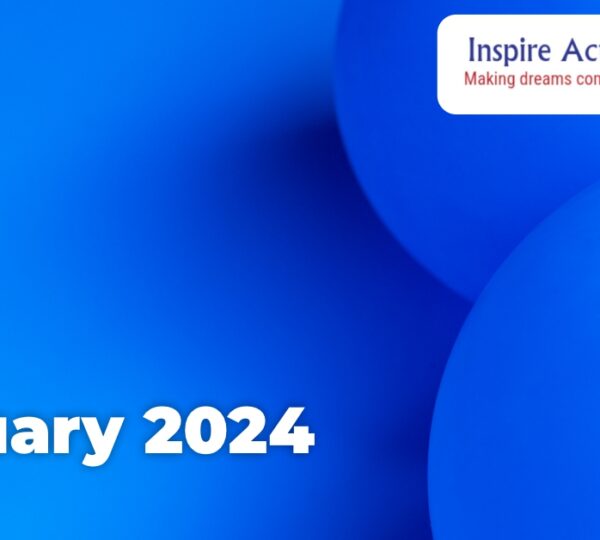
February 2024 in review
Inspire Action started the pilot phase of its Promotion of Vocational Oriented Training (PVOT) on February 5. The ongoing vocational training comprises wig making, braiding, manicure/pedicure and detergent making. At
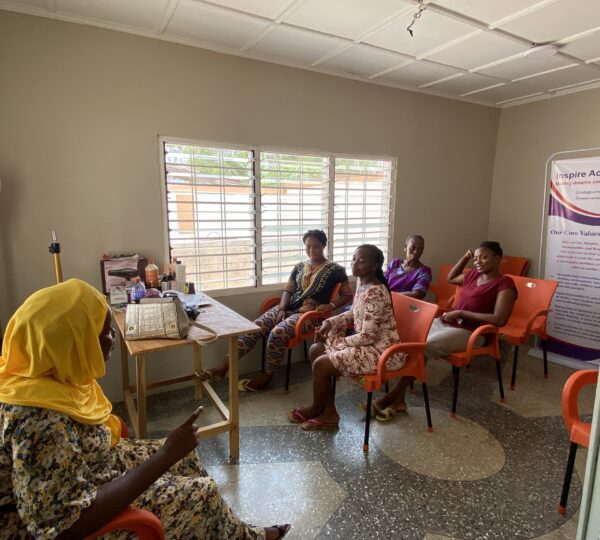
Second Cohort of PVOT project begins
The second cohort of the Promotion of Vocational Training (PVOT), an Inspire Action skills and capacity building project kicked off on Monday 26th February with its first session. The training



